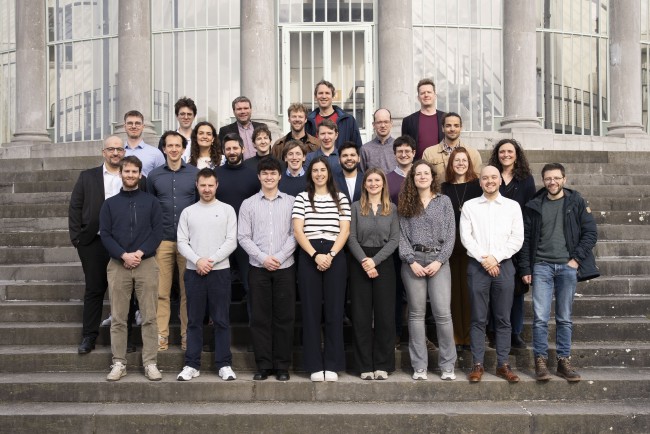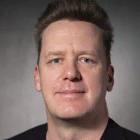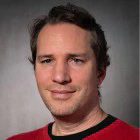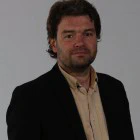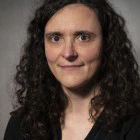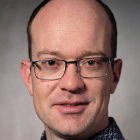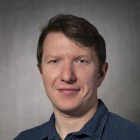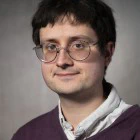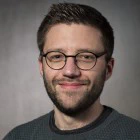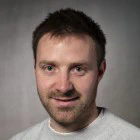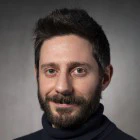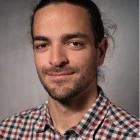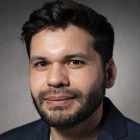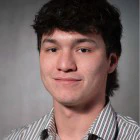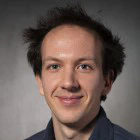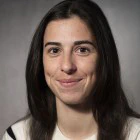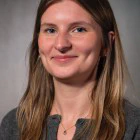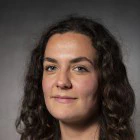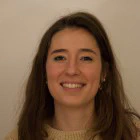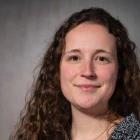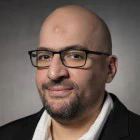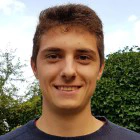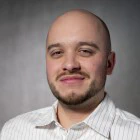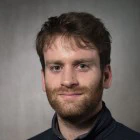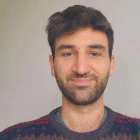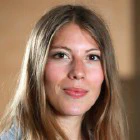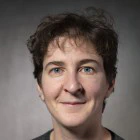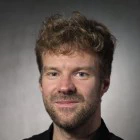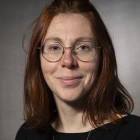Tom is a professor of public economics at the UCLouvain Saint-Louis - Bruxelles. He is director of the Center for Applied Public Economics (CAPE) and a member of the Center for Research in Economics (CEREC). Tom’s research interest are in public economics, data science, tax design, transport economics and environmental economics. Former research topics include game theory, auction theory and economic history.
The Center for Applied Public Economics
The Center for Applied Public Economics (CAPE) at the UCLouvain Saint-Louis - Bruxelles was created at the end of 2018, and works on various research topics in public finance, with a particular attention for labor market policy, mobility, environmental issues and socio-economic inequalities. At the core of CAPE’s research activities is the Beamm project, an effort to build a comprehensive online, open-access tax-benefit microsimulation model. Besides scientific research, CAPE also helps public administrations, policy makers and other interested parties with public policy evaluations, socio-economic impact analyses, spending reviews and other methodological support. CAPE chooses to work with all researchers in a closely knit team, with all team members closely working together on a highly collaborative research project.
Directors
Gilles holds a Ph.D. from the UCLouvain (2010). He then obtained a post-doc scholarship from the FNRS and is now assistant professor at University Saint-Louis-Bruxelles since 2016. He is the director of the Center for Applied Public Economics (CAPE), and a member of the Center for Research in Economics (CEREC).
Professors
Cedric Heuchenne holds a Master’s degree in Applied Sciences and a Ph.D. in Statistics from the Catholic University of Louvain (2005). He is now working as a Statistics/Data Science professor at the University of Liège. His research concerns different applied and theoretical fields like survival or duration data analysis, nonparametric statistical inference, machine learning, statistical process control, anomaly detection, quality management, or risk modeling.
Hélène is assistant professor in Economics at the UCLouvain Saint-Louis Bruxelles, as well as Chargée de Recherche CNRS. She obtained her PhD in Economics and Management Sciences from the Université Catholique de Louvain (UCL) in 2010. She is currently director of the Center for Economic Research (CEREC), and member of the Center for Applied Public Economics (CAPE). Her domains of expertise are Macroeconomics, International Economics and Economic Growth.
Koen is an Assistant Professor in Economics at UCLouvain – Saint-Louis Bruxelles. He obtained his PhD in 2016 at KU Leuven. After his PhD, he continued as a postdoctoral researcher at KU Leuven and UCLouvain.
Postdoctoral researchers
Callum is an interdisciplinary researcher that combines data science and software engineering to maximise research impact. He obtained his PhD in Cognitive Science from University of Leeds (UK) in 2016 then spent a number of years studying human perception, action, and cognition. More recently, Callum has been working at The Alan Turing Institute (UK) as a domain-spanning research data scientist, and has supported research into data privacy, environmental science, digital identity, and synthetic data. He is passionate about conducting open science that meets real-world needs and is supported by reliable and useable software.
Hugues Annoye is a researcher in statistics and machine learning. He holds a PhD in science from UCLouvain, after completing a thesis in statistics titled - Statistical matching and data generation - under the supervision of Cédric Heuchenne. Hugues also holds a bachelor’s degree in mathematics and two research master’s degrees (one in mathematics and one in statistic), all from UCLouvain. His research interests include statistics and data science, particularly statistical matching and synthetic data creation.
Alexandre holds a double Master’s degree in Economics from UCLouvain and Bocconi University (Milan), and a Master’s degree in Statistics from UCLouvain. He defended his PhD thesis in Statistics in June 2023, entitled « Lorenz regressions, a statistical contribution to the quantification of explained inequality ». Alexandre joined CAPE as postdoctoral researcher and member of the TAXFAM project in September 2023. He is mainly interested in the development of statistical procedures to better quantify and evaluate socioeconomic inequality.
Antoine Soetewey is a postdoctoral researcher in statistics at UCLouvain Saint-Louis Brussels and HEC Liège. He contributes to the Beamm project, which focuses on economic policy simulation, and the ODALON - Open multimodal Data for Automated Local News - project, which leverages data science to enhance journalism and enable the partial automation of local news. Antoine obtained his PhD in statistics from UCLouvain, focusing on survival analysis and biostatistical methods applied to cancer patients. He also holds a Master in Economics from KU Leuven and a Master in Econometrics from Maastricht University. His research interests include bio-statistics, data science, and the development of methods to analyze complex datasets. Passionate about making statistics accessible to everyone, Antoine leverages open-source statistical programming languages like R to democratize the use and understanding of statistical tools.
Francesco obtained his PhD in Economics from the UCLouvain. His research interests are: Labor Economics and Economic Geography.
Phd students
Daniel Coppens d’Eeckenbrugge holds a Bachelor’s in business engineering from the UCLouvain and a double Master’s degree in economics and political sciences from the Economics School of Louvain (UCLouvain) & the University of Milan (UNIMI).
Daniel’s research interests are mainly about public economy issues. He is currently orienting his research project towards tax-benefit systems and their distributional impacts through taxation.
Jean Paul Madrigal holds a Master in Economics, with an emphasis on Public Intervention, from the Université Catholique de Louvain. He has worked in applied research for the Mexican Association of Pension Funds, as well as in more academic settings such as El Colegio de México and the Luxembourg Institute of Socio-Economic Research - LISER.
Rory holds an Erasmus Mundus Joint Masters Degree in Quantitative Economics from Université Paris 1 Panthéon-Sorbonne, UCLouvain, and Ca' Foscari University of Venice. After graduating, Rory began to work at University Saint-Louis-Bruxelles as a full-time teaching assistant with plans to complete his PhD in Economics. His research interests are focused on but not limited to labor and public economics, more specifically the labor market conditions in the gig economy.
Aron holds a Master’s degree in Economics from KULeuven (2024) and a joint Master’s degree in Civil Engineering from VUB and ULB (2019). He has worked in the dredging industry, in secondary education and worked as an intern in the development of the microsimulation model EUROMOD at the Joint Research Centre (JRC) in Seville. Throughout his academic life, Aron was active in multiple non-profit organizations such as OSD VUB and IAESTE and he is presently secretary of VC Zavath. His research interests lie in public economics, tax-design, policy evaluation and political economy.
Astrid graduated with honors from a Master in Economics at the Université Catholique de Louvain in 2020 and from a Bachelor in Economics and Management with an Architecture minor in 2018. During her Master, she participated in the Erasmus+ Program for one semester at the Bocconi University in Milan. Her research interests are public economics and more precisely mobility and its impacts on the population. She also has experience in Spending Reviews.
Emilia completed her Bachelor’s and Master’s degrees in Economics and Management at UNamur. She started her PhD in Economics in 2021. Her research interests include health economics, social health protection, income inequalities, and disability.
Laure holds a bachelor’s degree in economics and management from Saint-Louis University Brussels and a double master’s degree in Economics from the Economics School of Louvain (UCLouvain) and from Maastricht University. She started a PhD in October 2023 and joined cape in September 2024. Her research interests are public and labor economics.
Léa Jacquet holds a Bachelor’s degree in Business Engineering and a Master’s degree in Data Science and Statistics from from UCLouvain. During her Master’s program, she studied at McGill University in Montreal for one semester, gaining valuable international experience. Throughout her academic journey, Léa was actively involved in organizations such as AIESEC and Alterékot. In September 2023, she began to work as a full-time research assistant with plans to pursue a PhD in economics. Her research interests lie in family economics, public economics, and econometrics.
Mathilde Pourtois holds a Bachelor’s in Economics and Management with a minor in Political Sciences from UCLouvain. She also has a double Master’s degree in Economics from the Economic School of Louvain (UCLouvain) and Maastricht University. After her studies, she worked for a year as a research assistant in the field of Regional Public Finances at the University of Namur. In 2019, she began her PhD in Applied Labor Economics at IRES (UCLouvain). She joined CAPE in September 2023 with plans to complete her PhD in Economics there. Her research interests include labor economics, education economics, policy evaluation (studying both intended and unintended effects of policies) and public finances.
Soufiane holds a master’s degree in business engineering from ULB (Solvay Brussels School of Economics and Management) and an AESS from the same institution. After completing his master’s, Soufiane worked in secondary education before joining the University of Saint-Louis-Brussels.
Tom earned a bachelor’s degree in economics from Saint-Louis University in Brussels and a master’s degree in economics from UCLouvain. Subsequently, he combined a teaching assistant role in economics at UCLouvain while pursuing a master’s degree in statistics at the same institution. His research interests include public economics and family economics.
Audric holds a Master’s degree in Economics from the ESL (UCLouvain). Prior to that, he was a student of the University Saint-Louis-Bruxelles. He had the chance to study abroad in Vienna and in Québec. He also enjoyed the student life as a member of Alterékot (kot-à-projet in Louvain-la-Neuve).
François Meuwissen holds a Bachelor’s degree in business engineering from the UCLouvain and a double Master’s degree in economics and political sciences from the Economics School of Louvain (UCLouvain) & the University of Milan (UNIMI). His research interests are mainly about public economy issues.
Thaddée holds two Master degrees in Economics and Data Science from Université Libre de Bruxelles. He has worked several years as an economist for trade unions and as a statistician in the Public Employment Service of the Brussels’ region. He joined CAPE in 2025 and is pursuing a phd with interests in quantitative methods.
Research associates
Fanny Vanrykel holds a doctoral degree in law. She specializes in fiscal law, with a particular attention for environmental and mobility problems.
Malka is an Assistant Professor in Economics at Liège University - HEC Liège. She obtained her PhD ifrom the Paris School of Economics in 2018. After her PhD, she joined the ETH Zürich as a postdoctoral researcher at ETH Zürich for three years. She is a public economist studying on the redistributive and predistributive impact of the tax system on income distribution. Her topics of interests include the taxation of the rich, the taxation of households versus individuals, and the financing of charities and political parties.
Willem is a Lecturer (Assistant Professor with tenure) in the Economics Division of the University of Stirling, and affiliated at KU Leuven (Department of Economics), University of Edinburgh (Center on Constitutional Change), UCLouvain (CEREC & JURI) and CESifo (Munich). His research spans the fields of public economics and political (behavioural) economics, with a specific focus on political attitudes, public finance and (fiscal) federalism.
Administrative staff
Julie is the administrative manager of the Center for Applied Public Economics (CAPE) and of the Center for Research in Economics (CEREC).

